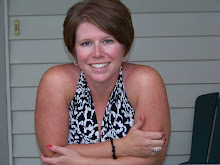This is my 4th year teaching first grade. This is the grade for me. Twenty years from now if I am teaching 1st grade I guarantee that I will be happy. These kiddos are fantastic and scatterbrained and enthusiastic and immature! (That's my Kevin Henkes impersonation) Here is the thing about 1st grade, many of them, can't read, tie their shoes, solve simple problems, put up their chairs, get lined up in ABC order, remember all the letters in the alphabet, know all their numbers, play nicely with others, and they literally think the world is spinning around them. They are their own little world. I have to remind myself that in six weeks they will be different, they will make extraordinary gains in that time frame.
Really, it is the greatest metamorphosis you will ever see. I really am amazed each time it occurs. They settle into their routine, and then you see them reading. They read everything. They can't get enough of this reading thing. And then they write. These simple creatures that couldn't focus longer than 5 minutes to read Chrysanthemum and Tikki Tikki Tembo are now able to write, stretch the important parts, and use the magical words of story. It is amazing!!!
We do this every year in the first grade. We do it all in six weeks! But wait, there's more!
This year I added the Reader's Workshop, just like the writer's workshop it starts with a mini lesson, an independent reading time/conferencing, and then sharing. The first grade reader's workshop is very heavy on the print strategies. I used to teach these subtly, now I teach them with charts, modeling, and repetition. My students are armed with so much ammo for reading that they are moving very rapidly up the reading mountain. I am so impressed with this workshop. Here are some of its finer points:
1. The strengths of reading for meaning vs. reading for decoding. Duh, what's the point?
2. Partnerships that play off strengths. My students also are showing strong signs of conversation. They are challenging each other to read books and step out of their comfort zones. Wow!
3. My students love books, already. They all think they are good readers because they know the strategies that "good" readers use when they come to a word they don't know. They love reading! There is never a groan, here is what you hear,"Please, no pushing and shoving, we need to be safe getting our books, there's plenty of time to read!" (Those are my words!)
4. They are reading faster. They are reading faster. They are reading faster. Six weeks, please, at three weeks they were doing extraordinary things. I tell you it is amazing!
So, this week for a bulletin board to kind of celebrate fall, and six weeks of school I had the students answer this question, "what is something that you do as a good reader?" I got so many great responses. The best was just knowing that they are thinking like a reader. They know that learning to read is hard work. They are proud of themselves and all their hard work.
What I learned:
I have not accomplished any of this. This is not my doing as a teacher. This is my doing as a facilitator of learning. I have created an environment that guides them down a path that I hope will prepare them for second grade and a lifelong of reading. I am following a scope and sequence that I created for the year, but I venture away from it. I let the children take the lead. When I see a need, I address it in a mini lesson. This is the beauty of the workshop. It is not predetermined. It is directly built upon my students' needs.
What are you doing in your classrooms or work with children that they could be doing themselves?
How is your conferencing, and sharing time influencing your teaching?
Friday, September 28, 2007
Subscribe to:
Post Comments (Atom)


2 comments:
I just posted about my afternoon too. It was magical I tell you!
I'm Baaack! Check me out!
Post a Comment